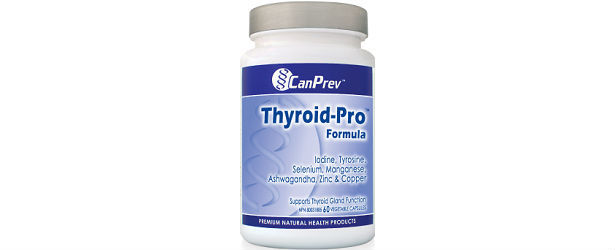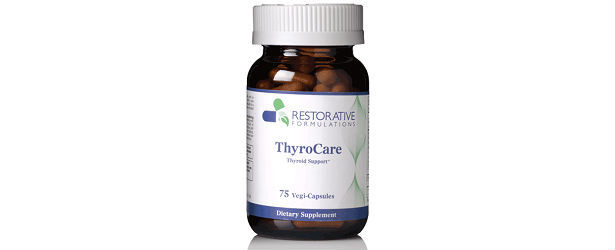
Hyperthyroidism and Iodine Deficiency
Iodine is vital for the development of our brain cells and for the regulation and production of the thyroid hormones. Lack of iodine can lead to a disorder of the thyroid gland called as hypothyroidism. In this disorder, production of the thyroid hormones, such as thyroxine, is suppressed. While treating hypothyroidism, there is always a risk of developing hyperthyroidism due to overzealous treatment. In hyperthyroidism, there is excessive secretion of thyroxine. Deficiency of iodine can be life-threatening for the health and it might be an indicator of some underlying health issue.
 Hyperthyroidism
Hyperthyroidism
The thyroid gland is small in size yet it is the master gland of our body. It is located in the front of our neck, just below the Adam’s apple. It produces the thyroid hormones, such as triiodothyronine and thyroxine. Hyperthyroidism is a disorder of the thyroid gland in which the thyroid become overactive and produces excessive amounts of thyroxine. Symptoms like drastic increase in the basal metabolic rate, resulting in rapid weight loss, sweating, an irregular or accelerated heartbeat, irritability and nervousness etc. can occur in this condition. Besides the deficiency of iodine, other culprits behind the hyperthyroidism can be Plummer’s disease, Graves’ disease, thyroiditis and toxic adenoma.
Deficiency of Iodine
Our body needs iodine for the production of thyroid hormones, such as triiodothyronine and thyroxine. These hormones play a role in the development of cognitive system of infants and in the regulation of our metabolic functions.
The lack of iodine usually stems from insufficient intake of dietary iodine and it can cause grave complications, for example irreversible damage to the cognition of newborns and metabolic derangement, like hyperthyroidism. According to the WHO, iodine deficiency is the major cause of avoidable mental retardation. Studies done on the American population shows that their iodine intake is above average, but certain exceptions are there and in some cases deficiencies might occur, for example in post- menopausal and pregnant women.
Role of Iodine
Radioactive iodine is used as a cure for a hypoactive thyroid gland or hypothyroidism. It is taken orally to shrivel the thyroid gland up and it can take 3 to 6 months for the symptoms to settle down. Nonetheless, this will also suppress the activity of your thyroid and you might be required to take measure to substitute for the consumed levels of the thyroxine hormone.
 This balance of the thyroid hormones and iodine levels is extremely sensitive and the overzealous treatment for the hypothyroidism can produce the reverse disease, i.e. hyperthyroidism.
This balance of the thyroid hormones and iodine levels is extremely sensitive and the overzealous treatment for the hypothyroidism can produce the reverse disease, i.e. hyperthyroidism.
Preventive measures
For the treatment of hypothyroidism, radioactive iodine plays an essential role but at the same time a suitable supply of dietary iodine must be ensured to keep the thyroid gland healthy. Standard values for the intake of iodine in the diet is 150 micrograms per day in the case of adult women and men, while in lactating and pregnant women the intake should be increased to 290 and 220 micrograms, respectively.
Natural sources of iodine include eggs, seafood, dairy and grains etc. Sea plants, for example seaweed and kelp are rich in iodine. Using an iodized salt can also ensure an adequate intake of dietary iodine.
TOP 5
THYROIDProducts |
|||||
| Thyraid | ThyroMend | Thyrene | SupraHealth | Blue Spring | |
|---|---|---|---|---|---|
| 1 | 2 | 3 | 4 | 5 | |
| Price (1 bottle) Price (6 bottles)best value |
$49.95 $139.80 |
$38.95 $233.70 |
$39.99 $159.96 |
$59.97 $323.84 |
$35.99 $194.35 |
| Overall Rating | 99.50% | 85.70% | 76.60% | 68% | 60.20% |
| Performance* |





|





|





|





|





|
| Speed of Results* | Extremely Fast | Good | Average | Average | Slow |
| Quality of Ingredients | Premium | Good | Good | Average | Average |
| Customer Satisfaction Evaluation | 99.20% | 84% | 74% | 68% | 60% |
| Safety Evaluation | Safe for Use | Safe for Use | Safe for Use | Safe for Use | Safe for Use |
| Customer Service Rating |





|





|





|





|





|
| Reorder Rate | Highest | Good | Good | Average | Average |
| Return Policy | Risk Free | Risk Free | Handling & Restocking Fee | Risk Free | Risk Free |
| Success Rate | 99.20% | 85% | 69.20% | 67.50% | 60% |

 Subscribe Now
Subscribe Now











